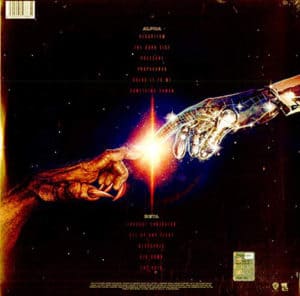Marketplace
2018 Warner Brothers PRESSING
- Catalog Number 0190295578831
- Release Year 2018
- Vinyl Mastering Engineer Ian Sefchik
- Pressing Weight Regular Weight
- Jacket Style Single
While Muse has never shied from tinkering and experimenting with electronics and synths, the trio fully embraces them here, resulting in an album on which the guitar makes cameo-like appearances in each song. Not to say loud guitars and powerful riffs—check the Prince-inspired funk meets metal of “Propaganda,” for instance—don’t appear, but they function as texturing devices. “Break It to Me” goes after the rhythmic thrust of modern hip-hop and EDM, “Thought Contagion” saves the guitars for the angelic choirs of the chorus, and “Blockades” remains so chaotic it sounds as if it was recorded in a pinball machine.
If a cohesive gel exists, it comes by way of the relentlessly upbeat feel. While doom and gloom crop up in the lyrics, which vaguely allude to politics, they largely focus on mind control via media and pop-culture saturation (“You ate my soul like a Death Eater,” sings the always honey-voiced Matt Bellamy in an allusion to the stories of Harry Potter). Not surprisingly for a set on which dozens of computers feel turned to 11, the record’s more direct moments stand out and allow Bellamy and Muse to flex their melodic muscles. The lighthearted and hopeful “Something Human” evokes Puff Daddy’s “I’ll Be Missing You” in parts, as it goes down slick and easy. Likewise, the rock anthem “Get Up and Fight,” sure to be heard at a Sunday NFL game near you.
The no-frills vinyl, mastered by Capitol Records ace Ian Sefchik, gets the job done with little noticeable fuss. While the songs are so densely packed with synthetic sounds that zeroing in on any singular sonic strand becomes a virtual impossibility, the relatively quiet and flat LP possesses a vibrancy undetectable on samples heard via streaming services. The real shortcoming, however, resides with the packaging, which leaves much to be desired. The glossy, yet thin cardboard jacket boasts lyrics printed in pink or green on black, with the font designed to mimic computer code. A nice gimmick, but forget about reading them.
Simulation Theory



 3
3


